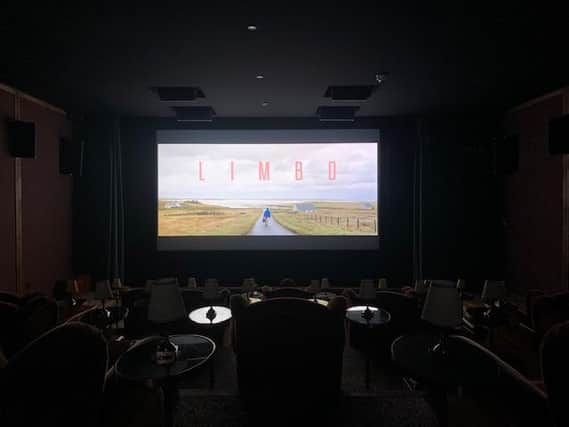Isles film location was ‘metaphor for purgatory’


The film, which was co-funded by Creative Scotland, is about the ordeal of asylum seekers awaiting their fate.
Slightly improbably, it casts 20 of them onto a “remote Scottish island” where they are given lessons in cultural assimilation while waiting to learn if they can stay.
Advertisement
Hide AdAdvertisement
Hide AdAs previously reported in the Gazette, the film has won generally favourable reviews in the United States where it was released three months ago with the New York Times describing it as “both heart-breaking and heart-lifting”.
The visuals are sometimes stunning – they couldn’t really go wrong in Uist - while the performance of the principal actor, Amir El-Masry, as a Syrian asylum seeker is sensitive and outstanding.
The theme is worthy and universal.
Whether the islands which hosted the film’s making view it in such favourable light as the critics remains, however, to be seen – or perhaps unseen. As the director, Ben Sharrock, emphasises, the film is not about the place it was made but an anonymous “remote Scottish island”.
The problem – as a viewing of the film revealed – is that the inhabitants of this “remote Scottish island” are racists and bigots to a degree nobody with even passing acquaintance of “remote Scottish islands” would recognise as having any basis in reality.
Advertisement
Hide AdAdvertisement
Hide AdWhile the asylum seekers are positively portrayed, the “islanders” are horrendous.
These fictional people shout abuse in indeterminate Scottish accents , put up a sign saying “asylum seekers not welcome” and articulate every racist prejudice.
The “island shop” presided over by a Sikh, has bare shelves, a notice which lists unacceptable terms of racial abuse and another which requests: “Please do not urinate in the freezer aisle”.
While all this may pass for humour somewhere, it is not a great image to project to the world of “remote Scottish islands”, however anonymous.
Advertisement
Hide AdAdvertisement
Hide AdThe contrast with what asylum seekers experience in non-fictional “remote Scottish islands” inevitably springs to mind.
There is no particular link to Uist – only the most avid cinema goers will even know the locations as they are identified only in the final line of the credits, which is probably a good thing.
We asked Ben Sharrock how his team had been treated in Uist and his answer was extremely positive. Everyone had been friendly, helpful and without the (non-fictional) islanders, they could not have made the film.
Had he met anyone who shared the racist attitudes of the fictional “islanders”? No, he had not.
Advertisement
Hide AdAdvertisement
Hide AdMr Sharrock explained: “What it is important to say is that it is a fictional Scottish island which became a metaphor for purgatory. The film reflected a pan-European response to asylum seekers – it wasn’t about the island where it was made”.
We understand that. However, any islanders who happen to see it might wonder why even a fictional, unnamed “remote Scottish island” should be associated with such a grotesque caricature of ignorance and prejudice.
But the Soho House cinema was lovely.